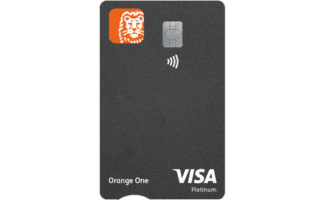Strategies for Managing Credit Card Debt and Maintaining a Good Credit History

Understanding the Impact of Credit Card Debt
Credit card debt is not just a financial figure; it embodies a significant emotional strain that can overshadow many aspects of life. The psychological toll of carrying debt can lead to stress, anxiety, and even depression, impacting both personal and professional relationships. In Australia, where families increasingly rely on credit cards, understanding the implications of accruing debt is paramount for fostering a healthy financial lifestyle. The average household debt reflects not just consumer habits but indicates the necessity for effective debt management strategies to mitigate risks associated with high-interest liabilities.
Strategies for Effective Credit Card Debt Management
Successfully managing credit card debt requires a systematic approach. Here are detailed strategies that can significantly alleviate the burden of debt while assisting in the improvement of financial health:
- Prioritize payments: Begin by analyzing your credit card statements to identify which cards carry the highest interest rates. For example, if you have a card with a 20% annual percentage rate (APR) and another with a 12% APR, it is financially prudent to direct extra payments to the 20% card. This method, often referred to as the “avalanche method,” reduces the total interest paid over time and expedites the journey to debt-free living.
- Create a budget: An effective budget is a cornerstone of sound financial management. By allocating specific portions of your income to essential expenses, discretionary spending, and debt repayments, you ensure that you remain on track. For instance, if you earn AUD 5,000 a month, consider setting aside a fixed amount—say, AUD 800—towards credit card repayments while also ensuring you have funds for necessities and savings. Numerous budgeting apps are available that can simplify this process, helping you track and manage your spending habits more effectively.
- Utilize balance transfers: If you are grappling with high-interest credit card debt, exploring balance transfer options can be a game changer. Many financial institutions in Australia offer promotional periods with low or zero interest rates for balance transfers. For example, transferring an AUD 4,000 debt from a high-interest card to a promotional 0% interest balance transfer card for 12 months can save you significant money on interest, allowing you to pay down the principal faster. However, ensure you carefully read the terms and conditions and avoid incurring new charges during this period to maximize the benefits.
Building and Maintaining a Good Credit History
A strong credit history is crucial for favorable lending terms in the future. To cultivate a robust credit profile, adhere to principles of responsible borrowing. Keeping your credit utilization ratio—calculated as your total credit card balances divided by your total credit limits—below 30% is advisable. This metric not only reflects your borrowing behaviors but also plays a significant role in your credit score evaluation. Additionally, timely repayment, especially ensuring that you pay at least the minimum payment each month, fortifies your credit history, establishing reliability among lenders.
In summary, debt management is a multifaceted endeavor requiring discipline and knowledge. By implementing these strategies, you can effectively manage your credit card debt, improve your financial standing, and foster a solid foundation for long-term financial health in the increasingly complex Australian financial landscape.
SEE ALSO: Click here to read another article
Implementing Practical Steps for Debt Elimination
Managing credit card debt effectively requires a multifaceted approach. Implementing practical steps not only alleviates the immediate financial burden but also contributes to long-term financial stability. Here are several strategies that can be instrumental in your journey toward reducing credit card debt:
- Establish a repayment plan: One of the first steps in managing credit card debt is to establish a clear repayment plan. Begin by assessing your total outstanding balances across all credit cards. This gives you a comprehensive view of your debt situation. Create a realistic timeline for repayment based on your income and expenses. For instance, if you have a credit card balance of AUD 3,000 with an interest rate of 20%, paying an additional AUD 300 monthly could allow you to clear it within a year. Setting specific goals—such as paying off two credit cards within six months—can foster a sense of achievement and motivate you to maintain financial discipline.
- Limit new credit usage: While managing existing debt, it is crucial to resist the temptation to acquire new credit lines. Acquiring additional credit can lead to an unsustainable cycle of debt that is hard to escape. Consider the impact of new purchases; if you’ve been working hard to pay down existing balances, think twice before using your credit card for those new shoes or dining out. Transition to using cash or debit cards for everyday expenses, which encourages mindful spending and helps you control your financial habits. This might initially seem challenging, but it can effectively curtail your spending and keep your credit utilization ratio within a healthy range.
- Negotiate with creditors: Don’t hesitate to reach out to your credit card issuers to discuss your financial situation. Many lenders are willing to negotiate terms for those experiencing difficulties, including options like lower interest rates, extended payment plans, or even debt settlements in certain situations. For example, if you explain your situation and express hardship, a lender might temporarily reduce your interest rate from 20% to 12%, significantly lessening the financial burden over time. A proactive approach can often result in more manageable repayment conditions, allowing you to focus on paying down your total debt without feeling overwhelmed.
- Consider debt counselling services: Should your financial situation become overwhelming, seeking assistance from professional debt counselling services can provide valuable support. In Australia, there are numerous non-profit organizations, such as the National Debt Helpline, that offer free advice tailored to your circumstances. These professionals can conduct a thorough assessment of your financial health and help you devise a personalized plan to manage debt effectively. They can also provide guidance on budgeting, saving, and creating sustainable financial habits that can assist you in avoiding debt in the future.
Incorporating these strategies into your financial routine can provide a solid foundation for managing credit card debt. By being proactive and utilizing available resources, you can significantly improve your financial outlook and work toward living debt-free. Furthermore, taking control of your credit card debt not only eases financial stress but also sets the stage for building a stronger credit history. An improving credit report can lead to better loan options, lower interest rates, and a more secure financial future.
CHECK OUT: Click here to explore more
Building Healthy Financial Habits
Creating a sustainable financial routine is paramount in managing credit card debt and fostering a good credit history. By adopting healthy financial habits, individuals not only streamline their debt repayment efforts but also cultivate a mindset that prioritizes long-term financial well-being. Below are several effective strategies to help fortify these habits:
- Establish a budget: Developing a comprehensive budget is essential for maintaining financial control. Begin by tracking your income and expenses to identify spending patterns. Subsequently, allocate a specific portion of your monthly income to debt repayment. This budget should prioritize essential expenses such as rent, utilities, and groceries while also setting aside funds for savings. Utilize budgeting apps or spreadsheets to monitor progress, allowing you to adjust your spending habits accordingly. By committing to a budget, you can avoid unnecessary purchases and maintain a focused approach towards debt reduction.
- Create an emergency fund: An emergency fund acts as a financial safety net and minimizes the allure of relying on credit cards during unexpected situations. Aim to save at least three to six months’ worth of living expenses in a designated account. This proactive approach decreases the likelihood of adding to your credit card debt in scenarios such as unexpected medical bills or car repairs. Even small, regular contributions to your emergency fund can accumulate over time and alleviate potential stress associated with unforeseen expenses.
- Monitor your credit report: Regularly reviewing your credit report is crucial in maintaining a good credit history. In Australia, individuals are entitled to one free credit report per year from major credit reporting agencies such as Equifax and Experian. Take advantage of this opportunity to review your credit report comprehensively, ensuring that all information is accurate. Pay close attention to your credit utilization ratio, which should ideally remain below 30%. If any discrepancies arise, promptly dispute them with the respective credit bureau to safeguard your credit standing.
- Use credit wisely: To maintain a positive credit history, utilizing credit wisely is essential. This includes ensuring timely payments on existing debts and keeping credit card balances low relative to the available credit. Opt for the debt snowball method—where you pay off smaller debts first to build momentum—or the debt avalanche method, which targets higher interest debts first, as both approaches can enhance your financial discipline. Consistent on-time payments not only contribute positively to your credit score but also reinforce the habit of responsible credit management.
- Educate yourself: Financial literacy plays a critical role in effective debt management. Consider accessing resources from reputable financial institutions that offer information on budgeting, saving, and credit management. Many Australian banks and non-profits offer free workshops and online resources that can enhance your understanding of personal finance. By educating yourself about the economic landscape and financial products, you can make informed decisions that align with your financial goals and protect against falling into debt traps.
By integrating these healthy financial habits into your daily routine, you can create a solid foundation for managing credit card debt and enhancing your credit history. Sustainable practices not only pave the way for debt-free living but also promote a more secure financial future, allowing individuals to access better credit opportunities and achieve personal financial aspirations.
CHECK OUT: Click here to explore more
Conclusion
In conclusion, effectively managing credit card debt and maintaining a solid credit history are crucial components of achieving financial stability and independence. By implementing a series of structured strategies, including the establishment of a budget, creation of an emergency fund, regular monitoring of your credit report, wise usage of credit, and fostering financial literacy, individuals can enhance their financial health over time. These practices not only aid in the prompt reduction of debt but also contribute to a positive credit score, which is fundamental for securing favorable lending options in the future.
Moreover, it is essential to adopt a proactive mindset towards financial management. Recognising the importance of early intervention when dealing with debt can mitigate future financial burdens. By prioritizing timely payments and remaining informed about one’s credit position, individuals can avoid the pitfalls of accumulating interest and late fees. Education plays a pivotal role in this journey; therefore, seeking financial advice and utilizing available resources can empower individuals to make informed decisions.
As Australians navigate their financial landscapes, integrating these strategies can lead to a debt-free future and a robust credit profile. Ultimately, committing to sound financial practices is not merely about addressing current debt but also about fostering sustainable habits that pave the way for long-term economic security and the ability to achieve personal financial goals. Embracing this comprehensive approach fosters an environment where both credit management and financial well-being can thrive.

Beatriz Johnson is a seasoned financial analyst and writer with a passion for simplifying the complexities of economics and finance. With over a decade of experience in the industry, she specializes in topics like personal finance, investment strategies, and global economic trends. Through her work, Beatriz empowers readers to make informed financial decisions and stay ahead in the ever-changing economic landscape.





